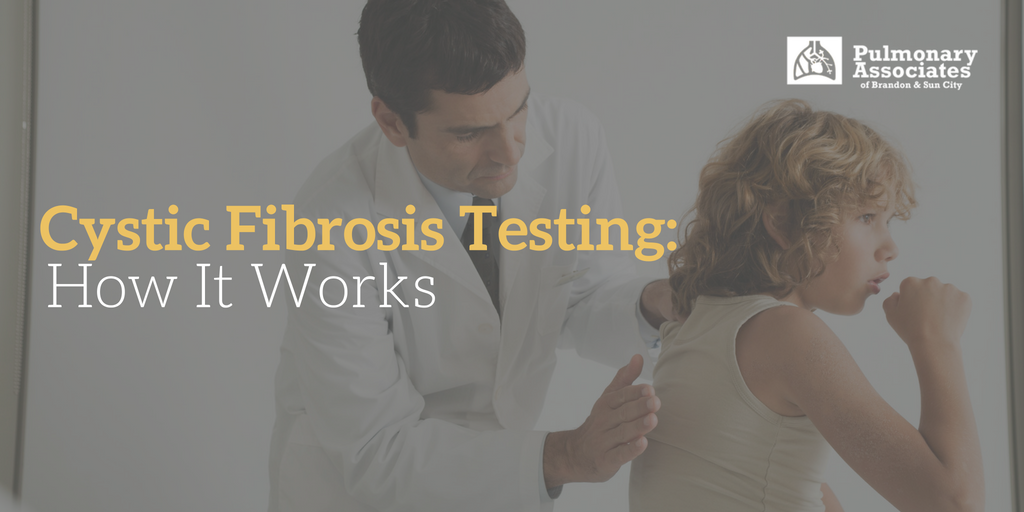Cystic Fibrosis is a very serious condition that can lead to life-threatening complications such as damaged airways and respiratory failure. That is why it’s vitally important that cystic fibrosis be diagnosed and treated as early in life as possible.
People with cystic fibrosis suffer from thicker than normal fluids, such as mucus, sweat, and digestive fluids. Rather than acting as lubricants, these fluids clog tubes, airways, and passageways. Living with the condition means serious medical attention in order to stay alive and active.
Getting a cystic fibrosis diagnosis early in life can really improve a person’s quality of life, as well as their life expectancy. But, how does cystic fibrosis testing work? At the Pulmonary Associates of Tampa Bay, our pulmonary specialists rely on 6 different diagnostic tests for cystic fibrosis. Read more to find discover how we get a cystic fibrosis diagnosis.
Cystic Fibrosis Testing
1. Newborn Screenings: Since 2010, all 50 U.S. states required newborns be screened for cystic fibrosis. The screening is simple, a blood test is taken to check the levels of a chemical made by the pancreas called immunoreactive trypsinogent, or IRT.
2. Sweat Test: During a sweat test, your specialist will trigger sweating in a small patch of skin. The sweat is then collected and tested for salinity. A high level of salt in the sweat confirms a cystic fibrosis diagnosis.
3. Chest X-Ray: A chest x-ray can signal cystic fibrosis by identifying inflamed or scarred lungs, and whether they are trapping air. An abnormal chest scan will lead your specialist to conduct a more conclusive diagnostic test for cystic fibrosis.
4. Sinus X-Ray: A sinus x-ray can catch indications of cystic fibrosis, such as sinusitis, which is a common complication of the condition. If you are suffering from frequent episodes of sinusitis, or chronic sinusitis, your specialist may suggest a more conclusive diagnostic test for cystic fibrosis.
5. Lung Function Tests: These tests measure how much air you breathe in and how much air you breathe out, as well as how your lungs distribute oxygen to your blood. How well your lungs perform in lung function tests can determine your lung health as well as whether you suffer from cystic fibrosis.
6. Sputum Culture: In this diagnostic test for cystic fibrosis, a sample of spit, or “sputum” is collected to be analyzed for the mucoid Pseudomonas bacteria. If present, it indicates an advanced form of cystic fibrosis which may need aggressive treatment.
More Information
To recap, cystic fibrosis testing can be most easily diagnosed with a newborn screening or a sweat test. Other tests like chest and sinus x-rays, and lung function tests can catch signs of cystic fibrosis. To determine the severity of cystic fibrosis, your specialist will likely recommend a sputum culture test.
To find out more information on cystic fibrosis and the different diagnostic tests feel free to contact us. To see a specialist about your cystic fibrosis, or to test yourself for cystic fibrosis, please book an appointment.

